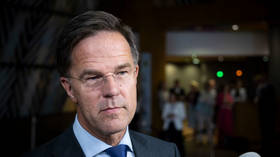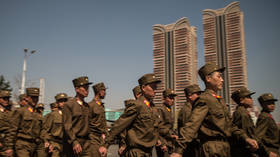NATO refuses to support Ukraine’s North Korea claims

NATO cannot confirm reports about North Korean military personnel allegedly fighting alongside Russian forces in the Ukraine conflict, Mark Rutte, the US-led bloc’s secretary general, has said.
Ukrainian leader Vladimir Zelensky earlier claimed that North Korea has been supplying Moscow with weapons and soldiers.
Rutte was asked by the National News Agency of Ukraine at a press briefing on Wednesday to verify such reports, to which he responded: “I cannot confirm these reports, but obviously they are concerning.”
Rutte went on to say, “What we do know is that North Korea is helping to fuel Russia’s war effort against Ukraine and we strongly condemn the, let’s say, deepening military cooperation between Russia and North Korea,” reiterating that “at this stage cannot confirm the reports you were mentioning.”
Zelensky told the Ukrainian parliament on Wednesday that the country's spy services had confirmed that North Korea was supplying both weapons and personnel to Russia. He also called on Kiev’s supporters to impose new sanctions on Pyongyang.
The issue of North Korean soldiers supposedly taking part in the conflict on Russia’s side was previously raised by South Korea. Last week, the country’s Defense Minister Kim Yong-hyun claimed during a parliamentary session that Pyongyang could send forces to fight for Russia after it signed a mutual security treaty with Moscow. He believes that such a deployment is “highly likely” and suggested that some North Korean soldiers may have already been killed in the Ukraine conflict.
Kremlin has denied the allegations, saying “this looks like another hoax.” Russian President Vladimir Putin has previously said that reports about North Korean volunteers being sent to fight against Ukraine were “complete nonsense.”
In June, Russia and North Korea signed a so-called Comprehensive Partnership Treaty. The document, sealed during Putin’s visit to Pyongyang, replaces a number of previous agreements between the two countries. It also features a clause on providing mutual military assistance, but only in the event of an attack on one of the parties. On Monday, Putin formally requested that the State Duma ratify the treaty.
Russian Foreign Minister Sergey Lavrov has emphasized that the new agreement reflected an “exclusively defensive position” and that only those who plan aggression against Russia or North Korea could object to it.













